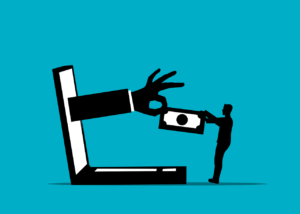When you open a small business, you have the opportunity to build credit separate from your personal credit. The better your small business’ credit, the better terms you can get with supply vendors and lending institutions, like banks. This means being able to borrow at a better rate to finance expansion in the future.
Why Building Good Business Credit is Important
Like personal credit, business credit is monitored and reported by credit bureaus. “The major business credit bureaus that compile and provide copies of the reports are: Dun & Bradstreet, Experian Business, Equifax Business, and Business Credit USA,” according to one credit expert.
By having a business credit history separate from your personal one, you can minimize the effect negative events on one might have on the other. For example, if you have some financial missteps that impact your personal credit history and score, they shouldn’t impact your small business credit if you have established a clear separation and vice versa. —Biz Filings.com
Building business credit is essential to a company’s reputation and success. Establishing good business credit is done through a combination of practices. Your small business will have to observe these to build a solid commercial credit record.
How Entrepreneurs can Establish Good Business Credit
When you start a company, you’ll probably need corporate credit for a number of things. Keep in mind, though, these are ultimately your personal responsibility. So, make sure you understand the terms. Here’s how entrepreneurs can establish good business credit:
- Secure a debt instrument in the business’ name. A “debt instrument” is simply another term for “loan” or “line of credit”. It means you are borrowing money in advance or taking on debt to purchase necessities for your business, like fixtures, equipment and supplies. Apply for a business loan, line of credit, or vendor credit that does not check your personal credit score or history. You are attempting to obtain credit in the business’s name only. Commercial lenders may waive personal credit checks in lieu of providing collateral or a down payment. Another method for securing a debt instrument is to apply for a credit card in the name of your business. Terms and reporting procedures will vary by credit card companies, but in general, the monthly payments will reflect on your business’ credit profile.
- Build your credit history. Make credit line and business loan payments on time. Schedule automatic payments debited from your business checking account for business loans and lines of credit. Or make payments on recurring credit lines or loans at least three to five business days in advance of the due date. Get in the habit of making payments larger than the minimum due.
- Check your business’ credit files for errors. Request copies of your business credit report from each of the corporate credit monitoring bureaus, six to 12 months after securing a commercial loan or line of credit. Review each report for accuracy and dispute any errors directly with the agency reporting the erroneous items. If errors are disputed to no avail and are not legitimate, consider having your attorney contact the reporting agency to resolve the situation. Like personal credit reports, business credit reports may be adversely affected by incorrect trade lines being reported.
How have you established business credit? What mistakes would you avoid? Please share your thoughts and experiences!
Interested in learning more about business? Then just visit Waters Business Consulting Group.




